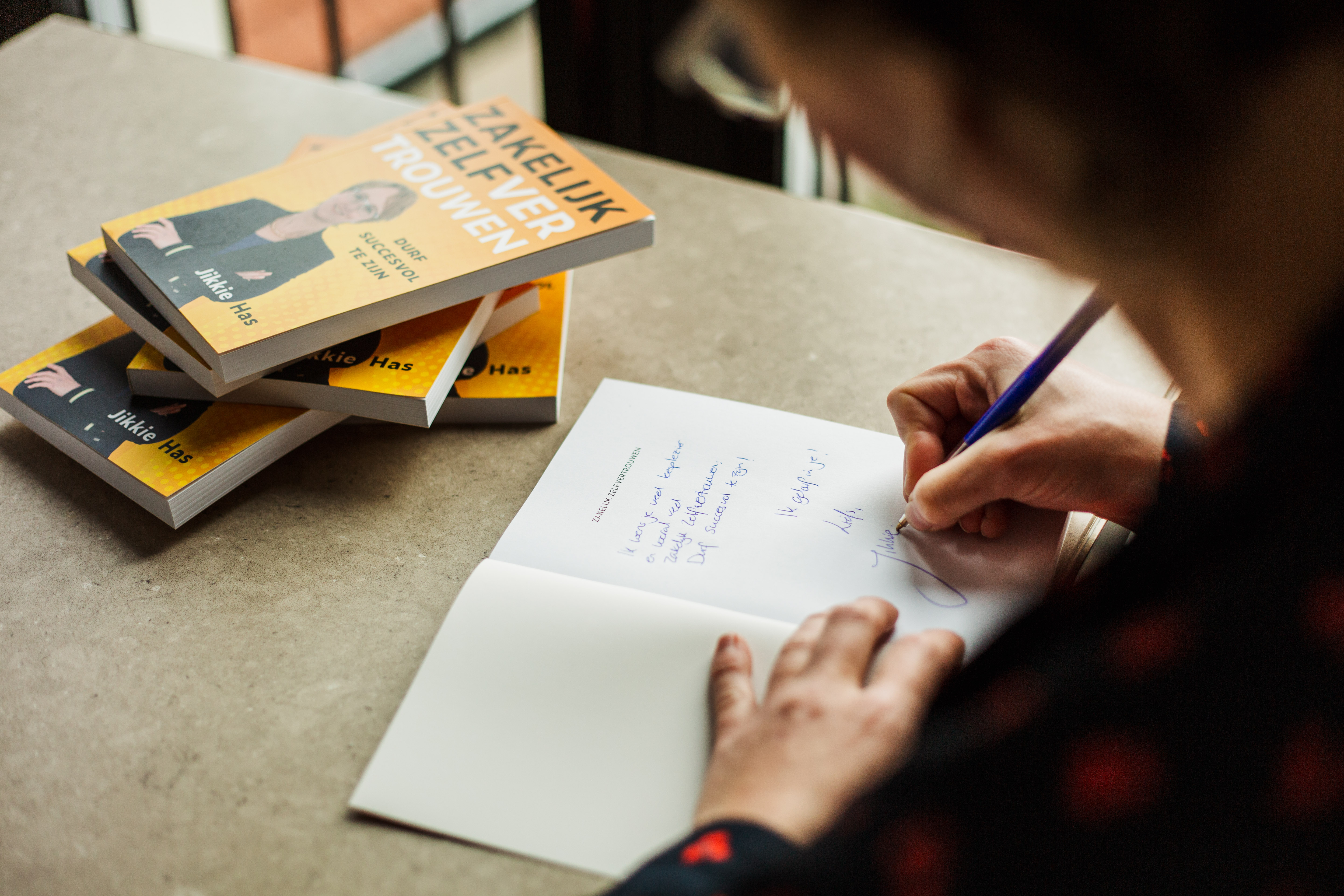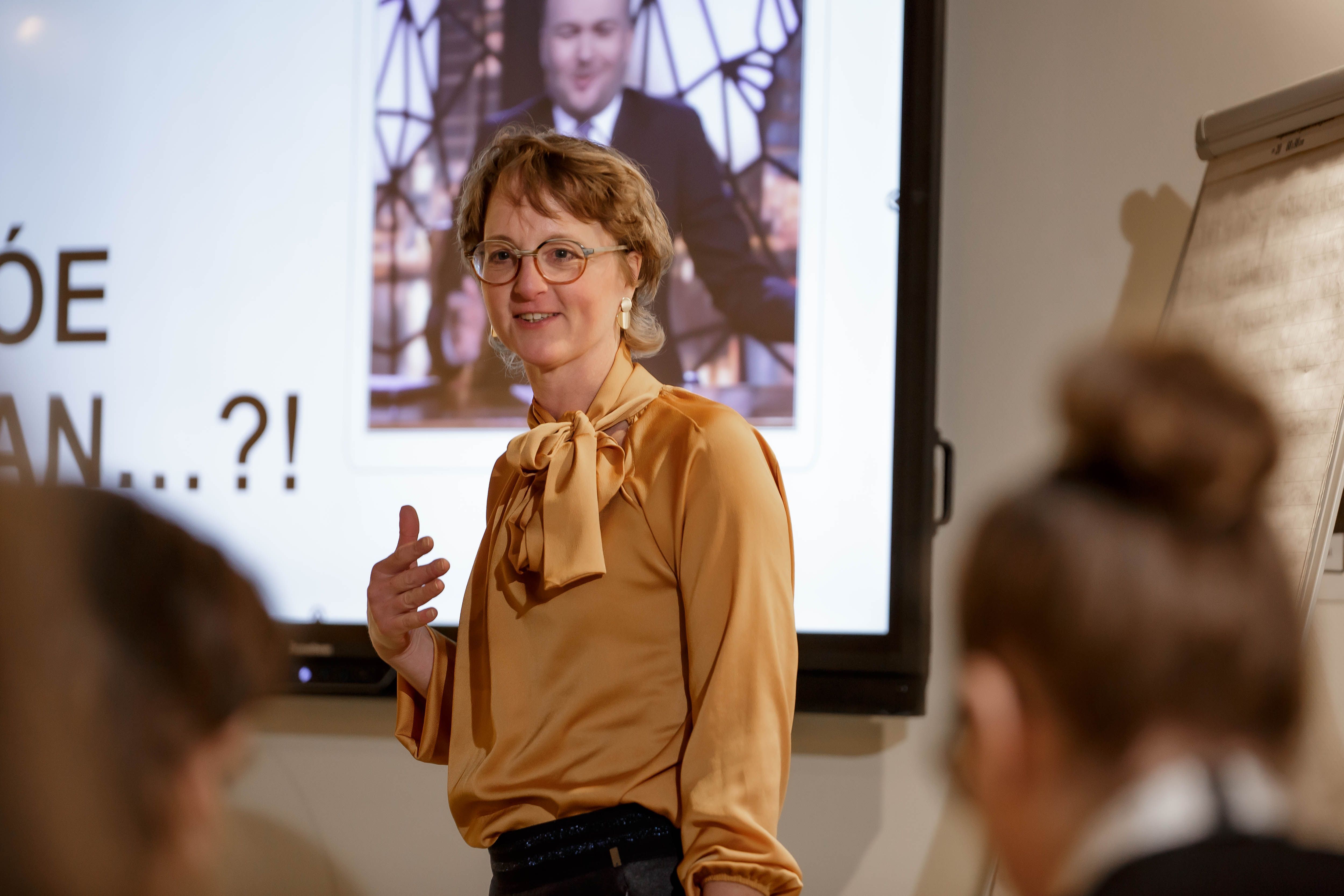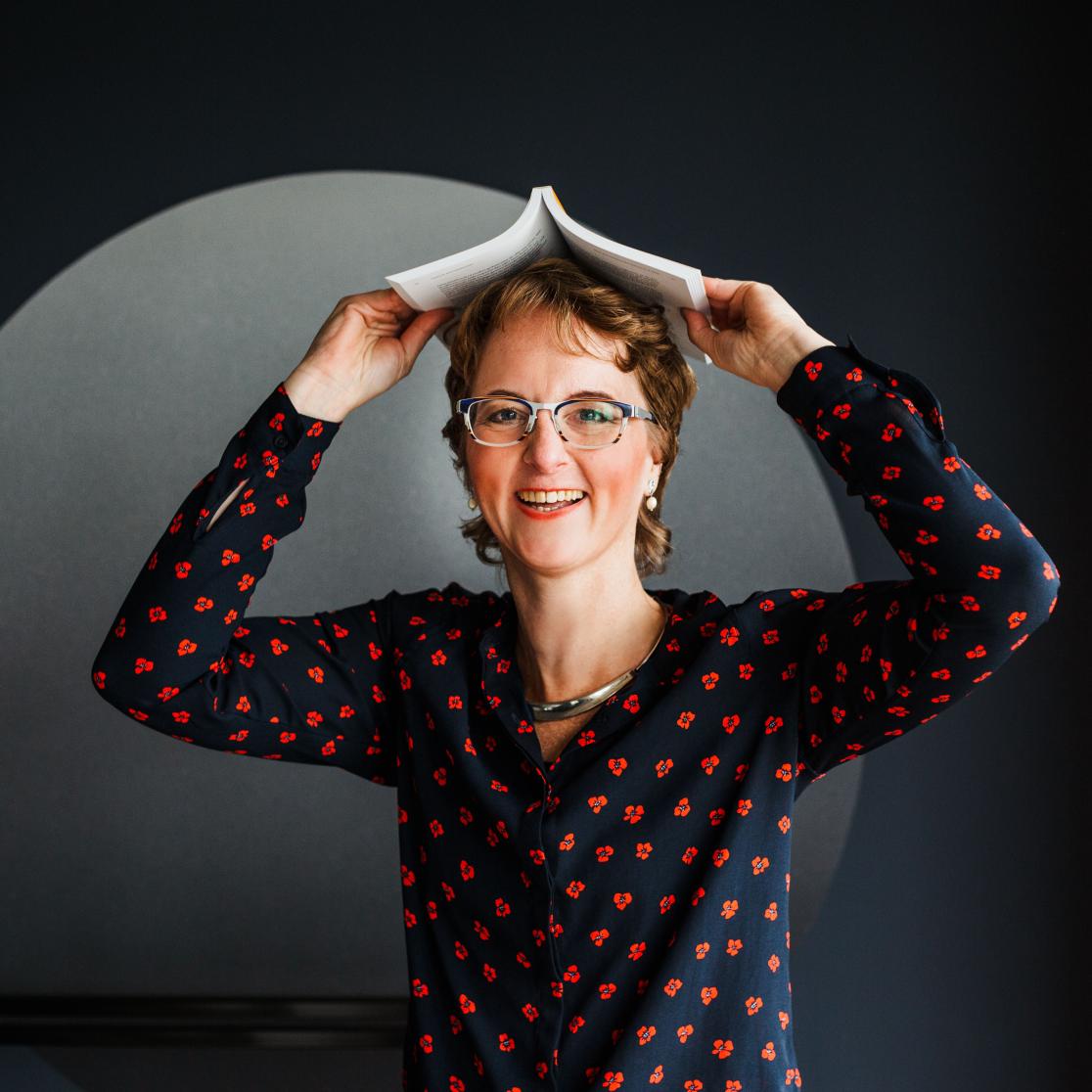Alumna Jikkie Has: The power of professional confidence
In the series ‘From Alumnus to Author’, we shine a spotlight on UM alumni who share their knowledge and experiences through books. This time, we focus on Jikkie Has, who in 2020, right in the midst of the pandemic, published her first book Zakelijk Zelfvertrouwen (Professional Confidence). By sharing her insights and expertise, she hopes to help others stand strong and confident in their professional lives.
From CEO ambitions to entrepreneurial dreams and authorship
After completing her Health Sciences degree at UM and a Master’s in Organisational Sciences, Jikkie began her career with a management traineeship at TNT Post. However, she quickly realised that the rigid structures of government organisations didn’t suit her, prompting her to question her ambition to become a CEO: “Whose dream am I really pursuing? Is this truly my dream, or is this what society expects of me?” she asked herself. “For me, it’s about whether you can look yourself in the eye and say you pursued what you find important—without being held back by societal expectations or your own ideas of how things ‘should’ be.”
With this realisation, Jikkie reconnected with her earlier dream of becoming an entrepreneur—something she had always wanted to do. However, taking the leap into entrepreneurship isn’t easy; you need motivation, determination, and sometimes a little push. For Jikkie, that push came during a spontaneous conversation with an entrepreneur on a train: “I said, ‘But I don’t know enough.’ He replied, ‘Know that you’ll always feel that way, so don’t let it stop you.’ That planted a seed. Three or four months later, I quit my job at TNT and took the leap to start my own business.”
What if I’m 85, sitting in my rocking chair, looking back? How do I want to feel about my life? Do I still want to be a CEO, or is that someone else’s dream?
Jikkie pursued marketing courses and became a Business Coach, giving lectures and helping countless freelancers and new entrepreneurs. But at one point, it seemed like everyone was becoming a business coach—even her assistant became a competitor. Around the same time, Jikkie experienced a miscarriage, which turned her world upside down: “It had felt so natural to be pregnant, it all went so smoothly the first time. And now, my view of reality was shattered. It was like realising the grass isn’t green after all, or that what once seemed logical no longer makes sense. If I can’t trust my body, what else isn’t right? I began to question everything.”
Searching for answers, Jikkie, with her scientific background, delved into the research on self-confidence. “I discovered so many gems of information and thought, ‘Why didn’t I know this earlier?’ So, I started sharing it, and people loved it. That’s when I decided: if people find this so useful, I’m going to write a book about it!”
Text continues below the photo.

Jikkie’s path to publication
It was no surprise that Jikkie would one day write a book. “I’d known for years that I wanted to write one, but I didn’t know what it would be about.” She cites legacy, knowledge-sharing, and increasing her impact as her main reasons. “During my lectures, I saw how valuable the information was, but there were still so many people I couldn’t reach. A book can have a much broader impact.”
To get her book published, she needed to find the right publisher. Since publishers rarely look for completed manuscripts, Jikkie first created an outline covering the content, message, and target audience. Then she faced a significant decision: to self-publish or go with a traditional publisher, even though this often means lower earnings per book. Jikkie explains: “I looked for a publisher that would create a win-win situation—one that would make my book better. I ended up with a publisher run by women from the publishing world who really knew their stuff and had a strong network.”
I had already imagined myself calling the publisher and saying, ‘Sorry, I’m pulling out. I’m quiting.’
Once she found the right publisher, Jikkie began writing. The process was slow at first; she procrastinated and struggled with tone and audience. When the publisher asked for the first drafts, she still hadn’t written anything. “I thought, this is just fear. This is insecurity again.” Luckily, the publisher reassured her: “A bestseller isn’t written all at once. We just need pieces of the puzzle, and from there we’ll put it together. Just start writing—it doesn’t need to be perfect.”
Jikkie often doubted her abilities: “I had already imagined myself calling the publisher and saying, ‘Sorry, I’m pulling out, I’m quitting, because this isn’t the quality I want to deliver. It’s not good enough.’” Her biggest fear was receiving negative feedback, but she pushed through by focusing on the potential impact of her book: “Even if it only helps one person, I choose to have an impact.”
Writing took about nine months, and with editing and publishing, the book was in stores a year later. Then came the promotion, because no matter how good a book is, it still needs to be sold.
Text continues below the photo.

Knowledge sharing: Professional confidence
In her book on professional confidence, Jikkie shares valuable insights from her extensive research. She studied numerous scientific studies and came to several important conclusions. A key point is that confidence is built on two pillars: competence and self-worth.
Jikkie discovered that men generally draw more confidence from their skills, while women tend to base their confidence on self-worth. Women are often more concerned with what others think of them and whether they’re doing things correctly. This makes them more susceptible to insecurity, as various studies confirm.
To overcome insecurity, Jikkie emphasises the importance of separating self-worth from success: “People need to understand that everyone feels insecure at times. Separate your self-worth from success, status, or a certain role. What if you do that? Perhaps then, the joy comes back, and making a mistake isn’t such a big deal.”
She also reflects on the pressures of modern life: “We live in a time where success is seen as something you can create; you’re responsible for your own success if you just work hard enough. In the past, you had fewer choices—you did what your parents did, and bad luck was just bad luck. Now, there are far more opportunities, so you have to make the ‘right’ decisions about education and career. But the flip side is that you’re also responsible for your failures. We often forget that luck and chance play a role too.”
We live in an era where we are responsible for our own success, and thus also for our failures. But is that really the case?
Future plans for author Jikkie
Jikkie is already planning her second book, this time focusing on a different aspect of confidence and insecurity: courageous moments. She’s unsure which publisher will release it. “Maybe I’ll go for a traditional publisher this time. But one that also organises conferences. This time I had a great network to write a good book, but next time I’d like to have a strong network to generate more business too.”
Further reading
Interested in learning more about confidence? Here are Jikkie’s top book recommendations to help deepen your understanding:
- Feel the Fear and Do It Anyway by Susan Jeffers
- Feel the Fear... and Beyond by Susan Jeffers
- Authentic Confidence by Jacqueline Brassey
- In Dutch: Vergroot je zelfvertrouwen by Robert Haringsma

Text: Janneke Haemers
Also read
-
Optimising growth for students and organisations
From UCM, to an applied research internship, to a master’s, to launching her own consulting projects in digital transformation , to helping other UM students shape their careers. Uliana Rybina does it all.
-
Learning from and with our alumni
Each year, Maastricht University (UM) invites its alumni to share their experiences and career development. The annual alumni surveys are of great value to us: they show how our graduates fare on the labour market, how they look back on their studies, and where we as a university can continue to...
-
Recap: UM Connect Day 2025
On Saturday 27 September 2025, around 150 Maastricht University alumni returned to Maastricht for the annual UM Connect Day. This year’s edition, held at the School of Business and Economics, centred on the theme technology and innovation. Alumni came together to exchange knowledge, strengthen networks...